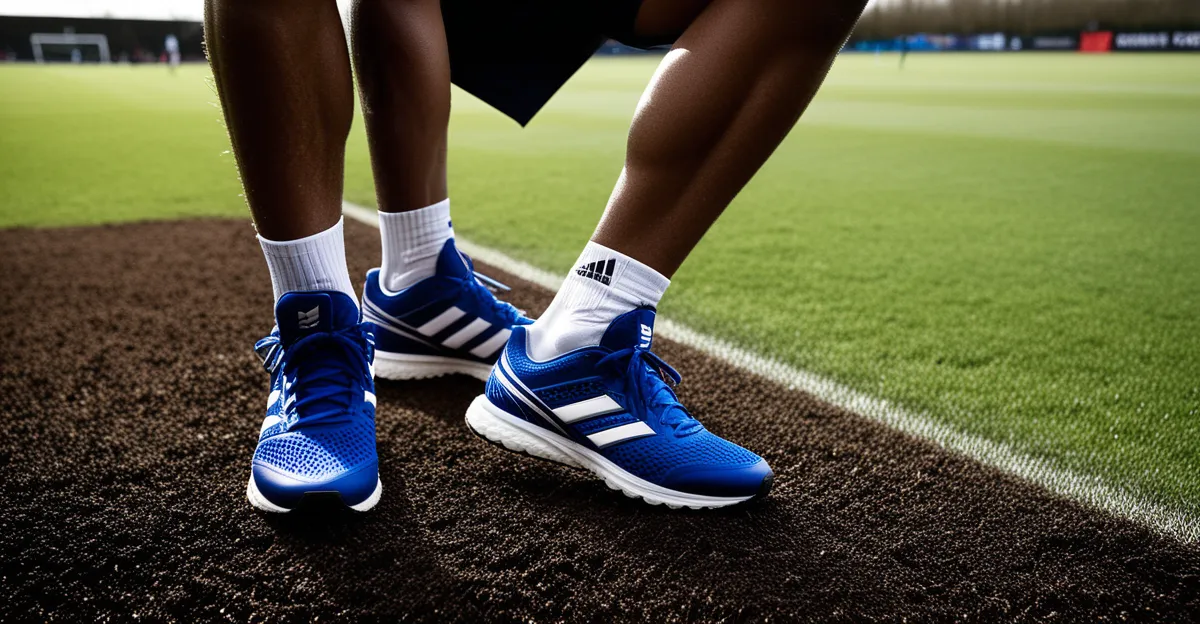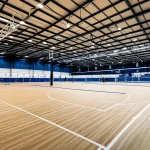Overview of Personal Growth through Sports
Personal growth through sports encompasses the development of character, skills, and self-awareness that individuals experience by participating in athletic activities. Within the UK sports participation scene, sports have been integral in shaping personal development due to their cultural and social significance. The nation’s rich history in sports such as football, rugby, and cricket, serves as a backdrop for fostering not just physical agility but mental adaptability as well.
In the sports culture of the UK, personal growth is often seen as a byproduct of consistent involvement in sports, with players experiencing enhanced confidence, resilience, and teamwork abilities. This culture emphasizes the value of sports as more than just physical activity, but as a vital contributor to individual well-being and development.
Also read : What Are the Long-Term Benefits of Participating in UK Sports?
Physical activity plays a crucial role in mental health and overall well-being. Regular involvement in sports aids in stress reduction, boosts mood through the release of endorphins, and enhances cognitive function. For many, sports provide a structured environment that promotes the development of discipline and perseverance, core components of personal growth.
Ultimately, sports participation encourages self-reflection and goal setting, vital components of personal growth. Through the lens of UK sports culture, sports provide an avenue for individuals to push personal limits, achieve new milestones, and embrace a healthier lifestyle both physically and mentally.
Also to read : How Are Indoor Sports Venues Transforming the UK’s Sports Culture?
Types of Sports Programs in the UK
Understanding the landscape of UK sports programs is essential for realizing the full spectrum of opportunities available for personal development across different age groups.
Youth Participation Initiatives
In the UK, youth sports programs are designed to foster early engagement with physical activities, promoting both physical and emotional growth among young participants. These initiatives often encompass structured formats such as clubs, after-school activities, and sports camps, which offer consistent opportunities for skill development and the building of life skills. Programs such as “Sportivate” have been lauded for successfully engaging young people aged 11-25, providing them with weekly sports sessions tailored to different levels of ability. The impact of these programs often extends beyond physical fitness; they play a crucial role in enhancing resilience and imparting invaluable life skills like teamwork and perseverance.
Community Sports and Inclusivity
Community sports programs in the UK cater to a broad range of participants, promoting inclusivity and fostering a sense of belonging. By offering accessible entry points to various sports activities, these programs ensure that people from diverse backgrounds can partake in physical activities without barriers. The benefits of such inclusive environments stretch far beyond physical health improvements, contributing to the creation of diverse sports teams where participants share unique stories and experiences. Many individuals involved in community sports highlight how inclusive settings have reinforced their confidence and broadened their social networks, illustrating the profound capability of sports to bring people together and enhance collective personal growth.
Elite Sports and Professional Pathways
For those pursuing a more serious commitment to sports, elite sports programs across the UK provide a pathway toward professional athletics. These programs are distinguished by rigorous training regimens, access to top-tier coaching, and comprehensive support systems aimed at nurturing the sportsperson’s talent and potential. The personal growth trajectories of professional athletes often reflect their perseverance and dedication, with many citing their sports involvement as a catalyst for developing resilience and leadership abilities. Insights from interviews with elite sports participants reveal that the challenges and triumphs experienced in their sports careers have significantly shaped their personal and professional lives, serving as a testament to the transformative power of elite sports participation.
Psychological Benefits of Sports Involvement
Engaging in sports can significantly enhance self-esteem and mental health, fostering a robust sense of self-worth. Studies repeatedly show that sports participation contributes to mental health benefits, boosting self-confidence through achievement and competitive success. Involvement in sports allows individuals to set and achieve personal goals, which is fundamental for self-esteem enhancement.
Moreover, the dynamics of teamwork and competition in sports are powerful psychological enhancers. They offer a supportive environment where individuals learn cooperation, strategic thinking, and healthy competition, all of which contribute to a positive self-image. For instance, sports psychology research highlights the role of a supportive team in reinforcing a player’s sense of belonging and value.
Several studies also link sports engagement with improvements in mental health, indicating reduced levels of depression and anxiety. The physical activity involved in sports promotes the release of endorphins, which are chemicals in the brain that aid in stress reduction and mood enhancement. For instance, a study published by the British Journal of Sports Medicine found that regular sports activity can lead to a 20-30% lower risk for depression and anxiety, demonstrating the profound impact of sports on psychological well-being.
Skills Development through Sports Participation
Participation in sports offers a fertile ground for enhancing various skills. From honing teamwork skills to building leadership capabilities, the dynamic nature of sports environments pushes individuals to grow personally and professionally. Developing leadership qualities is often a byproduct of sports involvement, as many athletes learn how to motivate peers, make strategic decisions, and manage responsibilities—core aspects of effective leadership.
Physical Skills and Health Awareness
Engaging in sports not only boosts skill enhancement but also promotes physical fitness. Regular participation enhances cardio-respiratory endurance, muscular strength, and flexibility. This not only improves performance in sports but also instills a lifelong appreciation for maintaining an active lifestyle. Acknowledging the long-term health benefits, these activities reduce risks of chronic diseases and elevate overall well-being, fostering a lifestyle that imbues health awareness among participants.
Interpersonal and Leadership Skills
Teamwork skills form the bedrock of any sports team’s success. Sports settings require coordinated efforts, teaching participants the importance of communication, understanding roles, and working cohesively towards a common goal. This interaction fosters meaningful relationships, whilst also cultivating leadership qualities. Individuals learn to act decisively, inspire fellow teammates, and resolve conflicts, which are crucial skills both on and off the field.
Time Management and Discipline
The structured nature of sports demands diligent time management and profound discipline. Balancing athletic commitments with personal and academic life requires meticulous scheduling and prioritization, thereby enhancing one’s ability to manage multiple responsibilities efficiently. Athletes often develop strategies to maximize their time, leading to improved productivity and a disciplined approach to day-to-day tasks, crucial for long-term personal growth.
Personal Growth Stories and Testimonials
Personal development stories from athletes vividly illustrate the transformative impact of sports on individuals’ lives. These narratives often reflect journeys of resilience, discipline, and triumph, presenting a collection of inspiring anecdotes that resonate with many aspiring athletes. A recurring theme in these athlete testimonials is the pivotal role of sports in fostering personal qualities such as confidence, teamwork, and perseverance.
Several athletes recount how their involvement in sports facilitated significant personal transformation, helping them overcome personal challenges and reach new heights. These testimonials often highlight specific mentoring relationships, underscoring the profound influence mentors have in guiding athletes towards growth and achievement. Mentors, through encouragement and guidance, play a crucial role in nurturing emerging talent, offering strategies and insights that propel athletes toward both personal and professional success.
An example of this is the story of an amateur rugby player who credits their coach for helping them build self-confidence and improve communication skills, ultimately advancing their career prospects both on and off the field. Such accounts reveal common themes of overcoming adversity, harnessing support networks, and the unwavering belief in one’s potential, demonstrating that the impact of sports extends beyond physical prowess to touch the very essence of personal development.
Practical Tips for Engaging in Sports for Personal Growth
Participating in sports can be a transformative experience, offering countless opportunities for personal growth. However, knowing how to maximize the benefits of sports for development is crucial. Here are some practical tips to guide you in this journey.
Finding the Right Sports Program
Selecting the optimal sports program tailored to your personal interests is an essential first step in embarking on a sporting journey. Assessing factors such as skill level, location, and available resources can greatly influence your experience. Utilize local community centers and online platforms to research available programs within your vicinity. By comparing various options, you can align potential choices with your personal interests, aiding you in discovering programs that enrich your personal growth.
Building a Support Network
Establishing a robust community and seeking mentors in sports circles can significantly bolster one’s experience. The camaraderie among teammates, encouragement from supportive coaches, and shared challenges collectively enhance the journey. Engaging in sports allows the creation of meaningful relationships, essential for emotional and motivational support. To foster these connections, actively participate in team activities and express openness to learning from seasoned participants. Identifying a mentor who aligns with your aspirations is invaluable, as their guidance can pave the way to achieving personal goals.
Setting Personal Growth Goals through Sports
Constructing a comprehensive framework for achieving personal growth goals is pivotal in catalyzing self-improvement through sports. Begin by setting realistic, achievable goals that focus on skill enhancement, physical fitness, or mental resilience. Break down these overarching goals into smaller, measurable objectives, thus making progress more tangible. Following the SMART criteria (Specific, Measurable, Achievable, Relevant, Time-bound) can enhance motivation, fostering long-term commitment to sports endeavors. Documenting and celebrating milestones instills a sense of accomplishment, motivating continued engagement in sports for personal growth.



